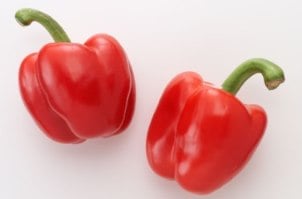Carotenoid extraction in food samples
In general, as highlighted before, there is no never-failing rule to select a solvent for carotenoid extraction and various solvents have been investigated for extracting carotenoids from food samples: acetone, ethanol, tetrahydrofuran (THF), hexane, toluene, diethyl ether, methanol, ethyl acetate, dichloromethane, petroleum ether, chloroform and butanol.
Most studies have used hexane as a single extraction solvent, followed by acetone, methanol and finally, THF. Less frequently, the use of petroleum ether, diethyl ether, dichloromethane, ethyl acetate and ethanol could be observed. Also, a wide variety of solvents combinations have been used by different researchers, like acetone/dichloromethane, acetone/ethanol, acetone/hexane, acetone/petroleum ether, methanol/THF, hexane/diethyl ether, hexane/ethanol/acetone/toluene and hexane/ethyl acetate. Ethanol/hexane (4:3 v/v) has been one of the most common combinations for food samples.



